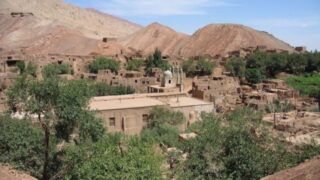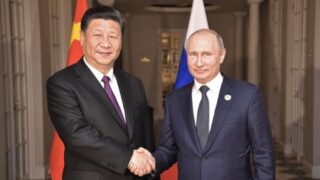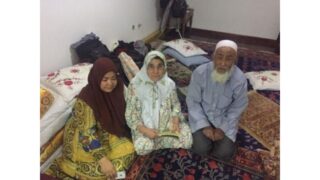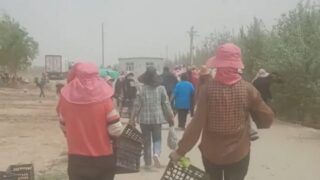For once, the European institution was brave enough to speak out while others had remained silent.
by Kok Bayraq


The world stood up when a Syrian boy drowned in the sea, and when George Floyd was brutally murdered; it became not only an American or Syrian problem, but also a world problem. This sensitivity, this responsibility is certainly deserved and appreciated; but when 44 people were burned alive in Urumqi, one hundredth of this sensitivity was not aroused. Why?
When I was considering this mystery, I heard the voice of the European Parliament. On December 15, the European Parliament, called on the Chinese government to be transparent about the number of victims and the circumstances under which they died in the Urumqi fire. They called for prompt, effective, and thorough investigation.


The passing of a joint motion for a resolution on the Chinese government crackdown on peaceful protests across the People’s Republic of China was a good step toward drawing international attention to one of the most tragic events in modern history: forty-four people were burned alive in Urumqi because of politics. It was also a chance to highlight the Muslim world’s shameless silence and the US’s weak voice regarding the tragedy.
The European Parliament went to the root of the tragedy by stating, “All the victims of the Urumqi fire are of Uyghur ethnicity, thus deepening the suffering of this ethnic group, which has fallen victim to systematic human rights atrocities taking place in the Xinjiang Uyghur Autonomous Region, which the European Parliament has recognized as constituting crimes against humanity and representing a serious risk of genocide.”


The value of this call is clearer if we look at the nature of the Urumqi fire tragedy.
What is the character of the Urumqi fire? Was it natural or human-made? Intentional or unintentional? Were the motives and causes negligence or inhumane selfishness?
In my view, the fire may be natural, but it is unnatural for a fire to last three hours and cause forty-four deaths. This is an artificial harm, an artificial death. Because their doors were locked by officials! The damage may not be intentional, it may be the result of negligence, but this negligence does not arise from the mystery of a disaster but from the indifference to the life of these forty-four souls. It is the savagery and barbarism of totalitarian regimes, putting their own interests above all else, always, everywhere. It would be a great mistake to view and characterize it as just the fruit of ineffectiveness and laziness.
Why would a person stay silent when a group door is locked or even closed? Because she is scared.
Why did the Chinese government try to scare its citizens? To reduce COVID cases to zero? For the safety of the people? Their slogan says yes, but that is not the reality of the situation. A country that cares about the security of its people will first respect their rights and dignity and will not violate those rights because of politics. It will give a free press the right to investigate. It will not imprison dissenters or crash protests with tanks to protect the regime.
What was China’s real reason for wanting to reduce COVID cases to zero? The goal was to justify their dictatorial regime by doing what other countries and governments in the world could not do, proving that dictatorship is also useful, finally prolonging the life of the ruler, and consolidating his throne.
How do we call politically motivated intimidation? Terror.
Most of the forty-four people who died in the fire were mothers and children. Their husbands and fathers, who might have been able to break the locked doors, were in camps and jails. For example, victim Qemernisa’s husband, father, two brothers, and eldest son have all been in prison for six years. What do you call keeping mothers and children separated from the rest of their families for political purposes? A hostage situation. A terror organization can take hostages for a few days or weeks; if a group functions as hostage for years, this is a case of state terror.
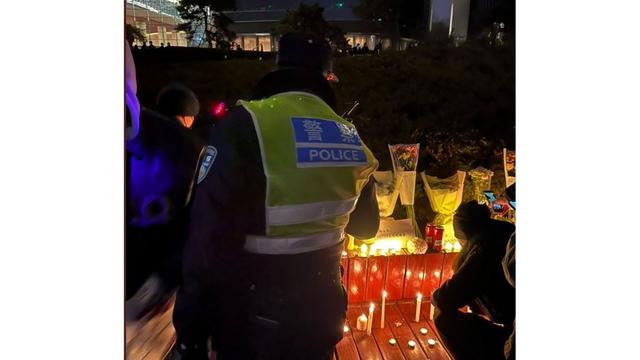

Thus far, China has neither updated the number of dead nor announced the victims’ identities. If an organization carries out an attack, it will take responsibility and make demands, but if the state commits terrorism, it will not take responsibility. On the contrary, it will consider its behavior as a way of protecting the people, protecting the unity of the state, consolidating the integrity of society, and, in this case, bringing the virus to zero.
Again, the Urumqi Fire is part of a scene of state terror, launched by China against the Uyghur people.
A terror state can take as hostages hundreds or thousands, but China has “successfully” taken as hostages more than three million Uyghurs. What should we call such situation? I think the best definition is “super state terror.” Or “superpower terror.”
In previous decades, some forms of state terror evolved into genocide. In those cases, the terror was reported by the international media and was condemned. In emergency situations, such as in the case of the Bosnian and Rwandan genocides, the world joined hands, and peacekeepers went into the field of terror and stopped it. However, the Uyghur Genocide which includes the Urumqi Fire, has not seen such action. On the contrary, most of the world is turning a deaf ear. Just because the terror’s responsible is a super state with extraordinary power.
This must be known. There was a terror incident at a residential building in Urumqi on 11/24/22. A list of the dead has not been published. The families of the victims have not been compensated. No one has been told how the bodies of the dead were treated. It is unknown whether the imprisoned family members of the dead were informed of this situation and were given the opportunity to participate in the funeral ceremonies. The most surprising thing is that no country came forward to call this what it was: state terrorism. The Urumqi Fire is a true picture of state terrorism perpetrated by a superpower.


